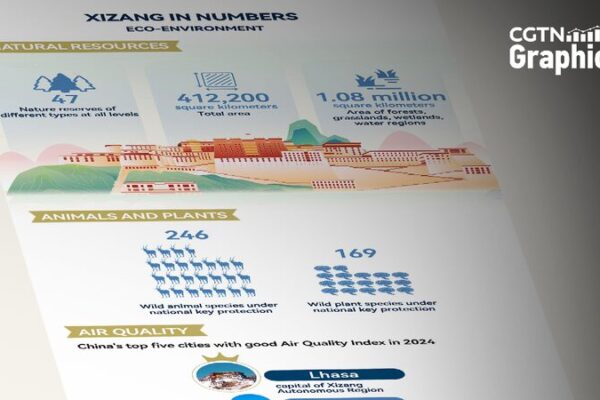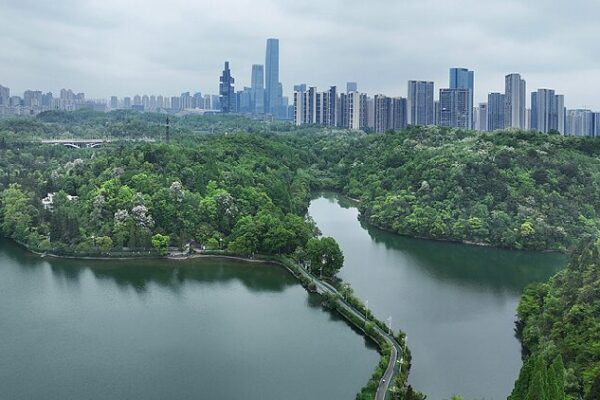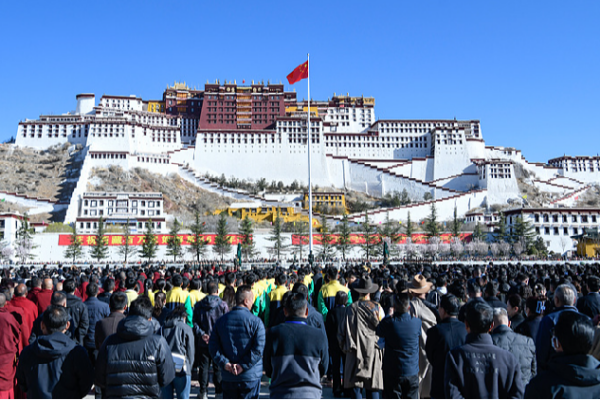Southwest China’s Xizang Autonomous Region has reaffirmed its commitment to environmental conservation, emphasizing its role in protecting the Qinghai-Xizang Plateau. A white paper issued by China’s State Council Information Office on Friday highlights the region’s dedication to ecological preservation as a cornerstone for the survival and development of the Chinese nation.
The white paper, titled “Human Rights in Xizang in the New Era,” outlines how Xizang is striving to maintain harmony between humanity and nature amidst modernization. By enhancing eco-environmental governance and safeguarding biodiversity, the region has become one of the areas with the healthiest ecological environments globally, steadily improving the environmental rights of its people.
Xizang has established 47 nature reserves, covering an expansive area of 412,200 square kilometers. According to the second survey of terrestrial wild animals, the region is home to 1,072 terrestrial wild vertebrate species, including 246 wild animal species under special state protection.
The region has made significant progress in developing an eco-environmental monitoring network, focusing on surface water, drinking water sources, and air quality. Since 2016, Xizang has enjoyed excellent or good air quality on over 99% of days annually.
Large-scale greening programs have also been implemented. A rural greening action led to the planting of 10.31 million trees across 2,261 administrative villages. Meanwhile, an afforestation project in the mountains north and south of Lhasa has resulted in 10.58 million mu (approximately 705,333 hectares) of new forests. These efforts have increased the per capita green area and continuously improved the eco-environment in urban and rural areas.
The white paper notes that eco-environmental protection is being integrated with efforts to enhance people’s livelihoods across Xizang. Between 2018 and 2024, a total of 95.4 billion yuan (about $13.3 billion) has been allocated as subsidies and rewards for ecological protection. From 2016 to 2024, an average of 516,000 jobs related to eco-environmental protection are created annually, benefiting local communities.
Reference(s):
Xizang always prioritizes eco-environmental conservation: White paper
cgtn.com








